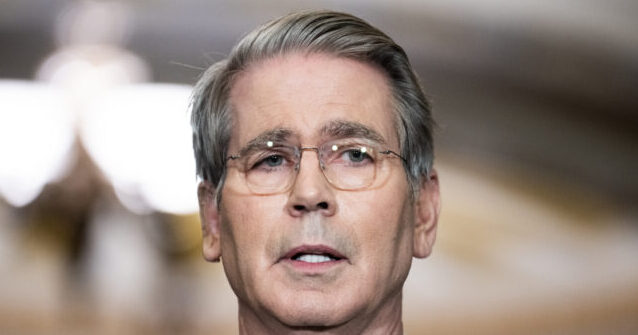Treasury Secretary Scott Bessent on Monday called for a deep and wide review of the Federal Reserve, questioning whether the central bank is failing at its central missions of conducting monetary policy, supervising the biggest banks, and ensuring financial stability.
“What we need to do is examine the entire Federal Reserve institution and whether they have been successful,” Bessent said during an interview on CNBC’s “Squawk Box.” “Has the organization succeeded in its mission? If this were the FAA and we were having this many mistakes, we would go back and look at why has this happened.”
His comments appeared to call for a much more thorough review of the Fed’s activities than has been undertaken in decades. The Fed is subject to Congressional oversight but is not dependent on Congressional appropriations. It is self-funded, using the interest income from assets it acquires by creating bank reserves to finance its capital expenditures and payroll. Critics say this has led to a lack of transparency and may allow waste, fraud, and abuse to go undetected.
The Trump administration in recent weeks has criticized the Fed for cost overruns at the $2.5 billion renovation it has undertaken for two of its buildings in Washington. Director of the Office of Management and Budget Russ Vought recently sent a letter to Fed chairman Jerome Powell with questions about the renovations, prompting a written response from Powell.
While there has been speculation that President Donald Trump could use an investigation into the renovations as a basis for a “for-cause” removal of Powell, Trump has said repeatedly that he has no plans to remove the Fed chief before his term ends in May of next year.
Bessent criticized Fed officials for fanning fears that tariffs would lead to inflation.
“They were fear-mongering over tariffs, and thus far we have seen very little, if any, inflation,” Bessent said. “We’ve had great inflation numbers.”
In the interview, Bessent echoed critics who have accused the Fed of being locked in an intellectual monoculture, or “groupthink.”
“So, you know, I think this idea [is] of them not being able to break out of a certain mindset. All these Ph.D.s over there, I don’t know what they do,” Bessent said. “This is like Universal Basic Income for academic economists.”
Read the full article here


